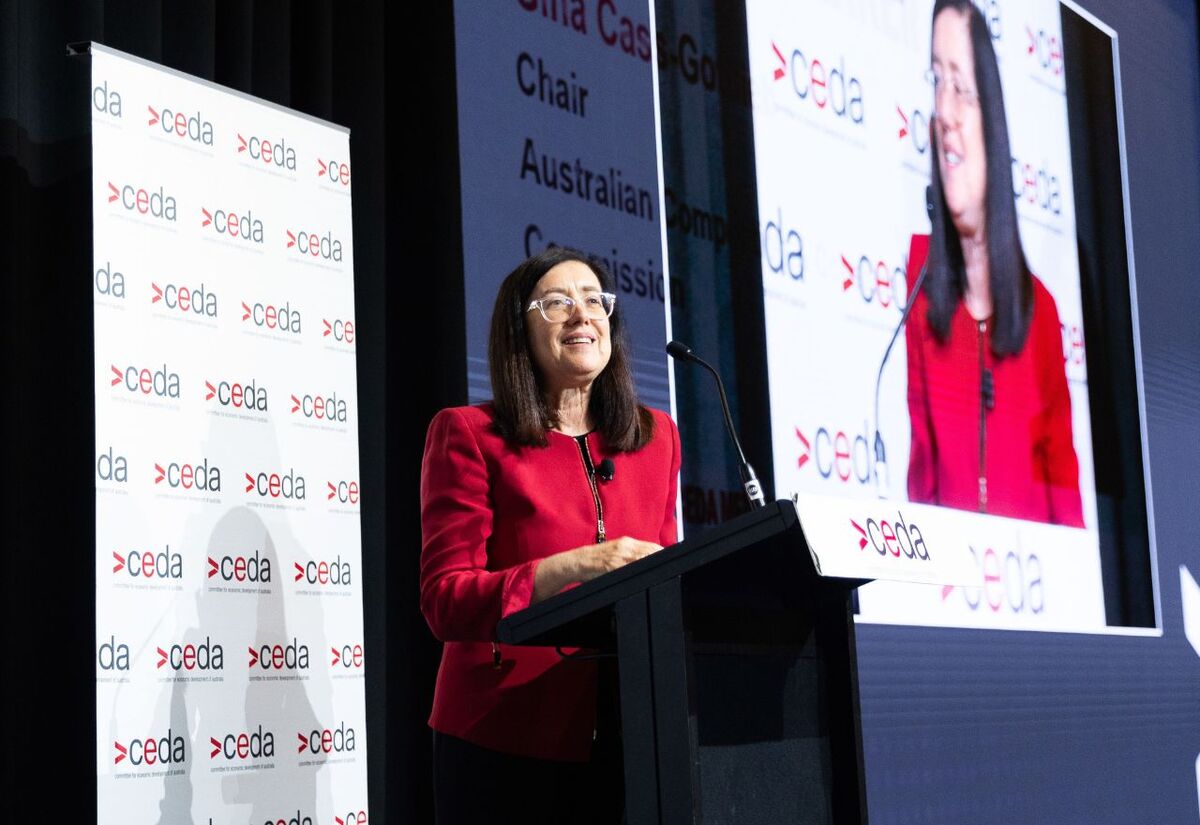ACCC sets sights on supermarkets
Lucy Dedman
14 March 2025, 8:21 PM
 Gina Cass-Gottlieb, Chair, Australian Competition & Consumer Commission. Image: CEDA
Gina Cass-Gottlieb, Chair, Australian Competition & Consumer Commission. Image: CEDAThe Australian Competition and Consumer Commission (ACCC) has stepped up its focus on the retail sector, with particular focus on the power dynamics between supermarkets and their suppliers.
Last year, the ACCC initiated legal action against major retailers Coles and Woolworths over alleged misleading discounting practices.
The ongoing concerns about misleading pricing practices and surcharging have prompted the ACCC to make supermarkets a top priority for 2025 – 2026.
In her annual address to the Committee for Economic Development of Australia (CEDA), the ACCC Chair, Gina Cass-Gottlieb, highlighted the government's commitment of $30 million over three and a half years to support investigation and enforcement of fair trading practices.
“Our work will also address the potential imbalance of power more broadly between larger businesses that impose standard form contracts on one hand, and small businesses and consumers on the other as reflected in our priority on unfair contract terms in consumer and small business contracts,” Ms Cass-Gottlieb said.
The priorities have been welcomed by the National Farmers' Federation (NFF), with President David Jochinke praising the regulator’s continued focus on supermarket competition.
"The ACCC doubling down on supermarket competition is a win for farmers and consumers. The confirmation funding will be used to investigate supplier concerns is a crucial step towards ensuring fairness."
The NFF Horticulture Council Chair, Jolyon Burnett, also expressed support, “this is much needed given that the horticulture industry is particularly vulnerable to the misuse of market power due to the perishable nature of our produce.”
The ACCC’s Supermarkets Inquiry 2024-25 Interim Report highlighted the challenges faced by growers, particularly of perishable products, stating that “bargaining positions are likely to be highly unbalanced in favour of supermarkets” for these suppliers.
In discussing the impact of the ACCC's growing scrutiny, the Manager of Nyngan Foodworks explained how updates from larger companies ultimately reach smaller, independent stores, albeit with some delay.
“It will all filter down the chain eventually. It will probably take a fairly long time to get to independent and rural stores, but it will eventually.”
Despite these delays, the store upholds a commitment to ensure customers are fully informed about their purchases.
“We make sure that the price is as it appears. We always hang our tickets in front of the green label tickets so you can lift the ticket and see your discount and our specials tickets tell you your savings amount.
“I belong to a Food Works banner, and they make sure that we are compliant. Of course we make sure from the floor too.
"Say, it’s a 24-pack of soft drink. When I sell that soft drink within a weekly timeframe, I'm paid a rebate off the sales, not off the invoice. So that guards you from buying a semi-trailer full of pallets at $20 a box and selling it for $40 when it’s off special."
The manager says that there are other measures in place to ensure compliance.
"At any given time, they can send a secret shopper to check these things. You only know if you get a letter and they say, we checked this special and it wasn't happening. They do that from time to time.”
Ms Cass-Gottlieb noted that strong consumer law enforcement is integral to maintaining fair competition.
"Moving forward, we will continue to act as a strong protector of Australian consumers, ensuring that markets remain competitive and fair,” she said.
The ACCC say they will prioritise fair competition and consumer protection across essential services like telecommunications, electricity, and gas, enforce new merger regulations, address issues in the digital economy, and continue its efforts against greenwashing and unfair contract terms across various sectors.





